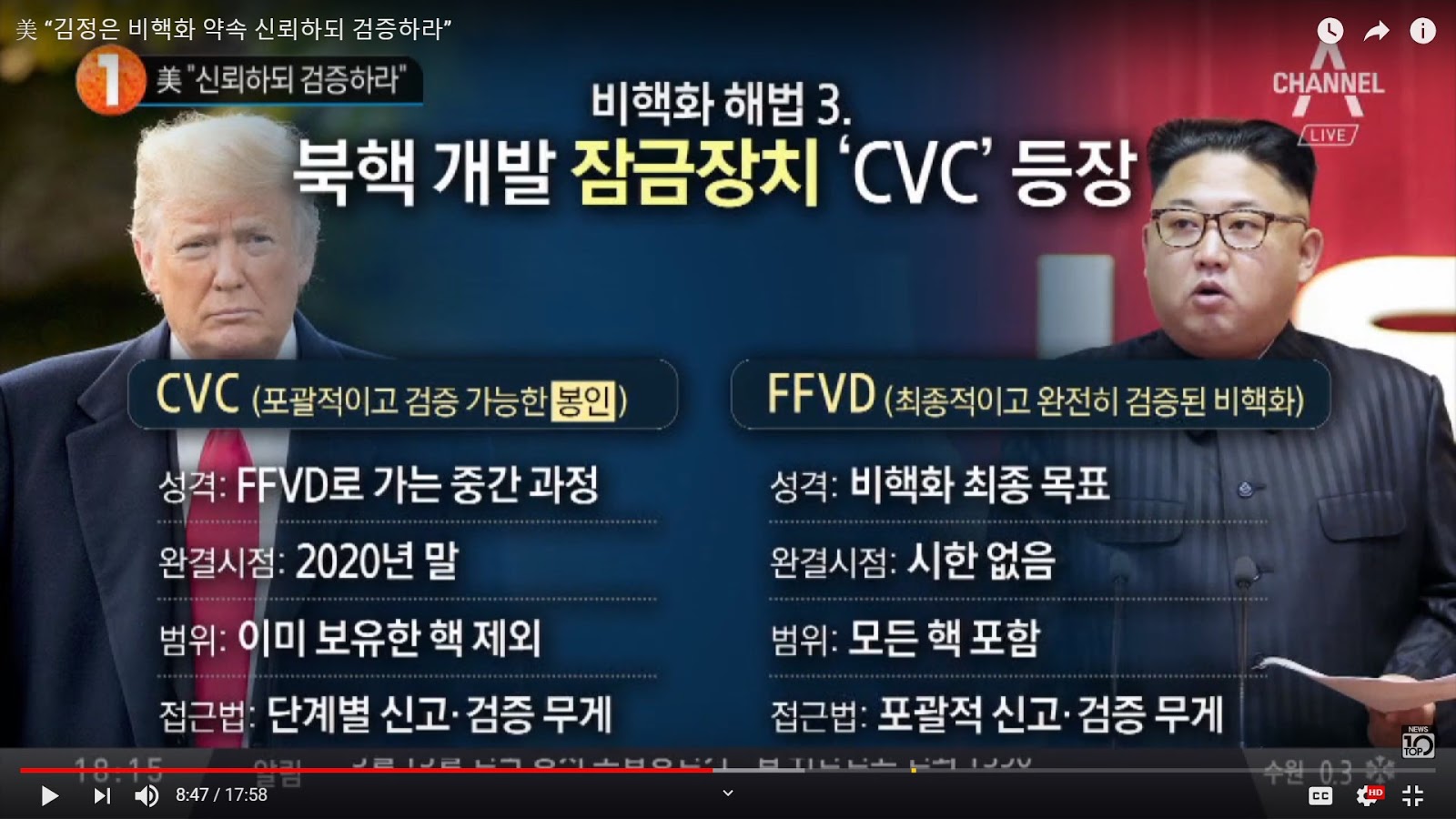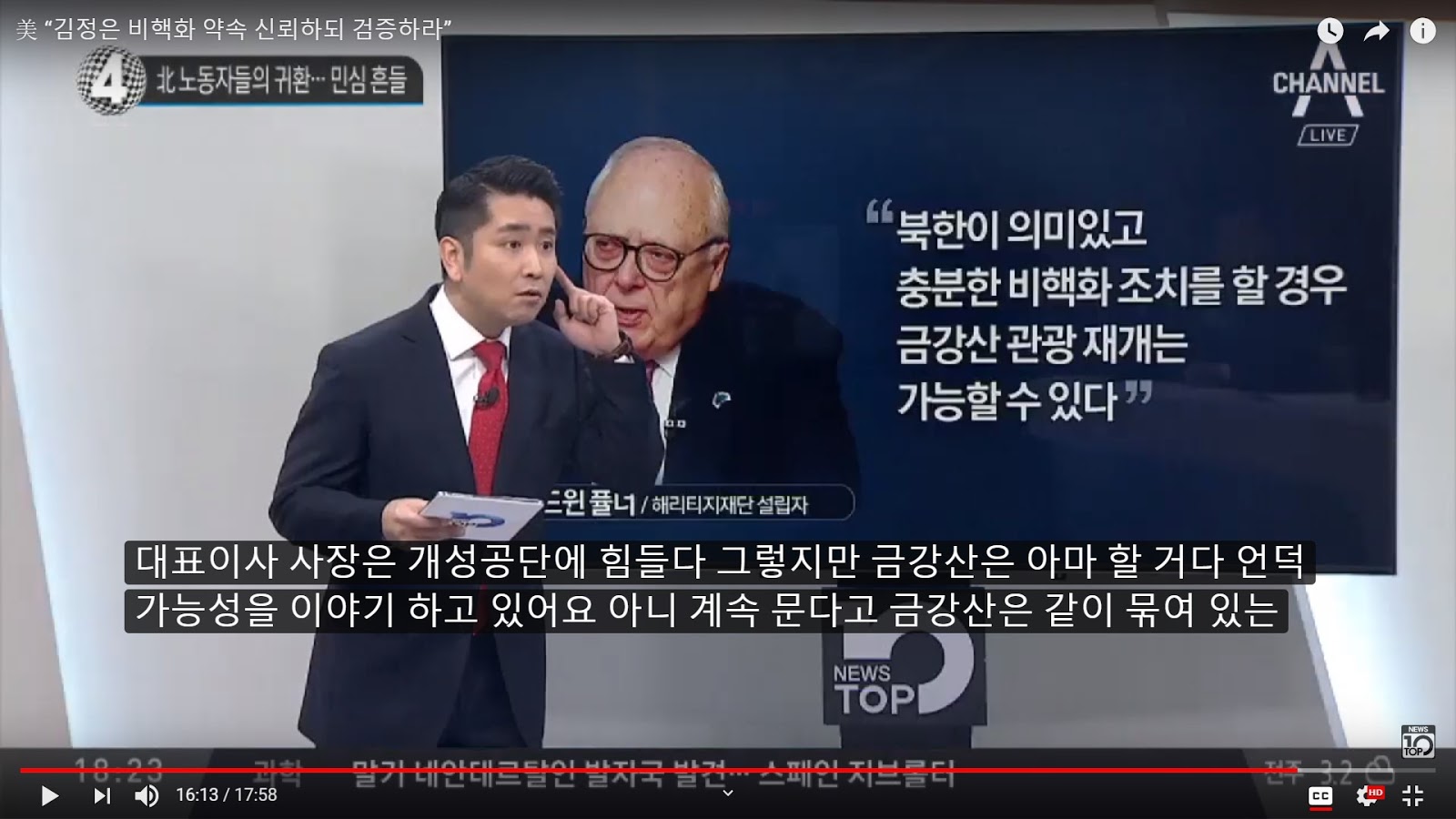soryang
soryang's JournalThe administration is taking a piecemeal approach to negotiation
The so called phased or step by step approach with reciprocal concessions. Therefore it would be difficult to characterize it as a sweeping success, even if there are positive concessions from North Korea. Early on Bolton castigated this approach and preferred the unrealistic "one bundle" or "Libyan approach," to negotiations which demonstrates his incompetence in Asian affairs if not in diplomacy generally.
The negotiations will begin to look like what occurred before in the six party talks, and agreed framework. This has been the inevitable trend all along, although the administration denied it at the outset because it contradicted their campaign promises. The negotiating approach will look more and more like the previous democratic approach to North Korean denuclearization in the past.
Whether the second summit is a "success" or not, will be more about the spin put on it by the media than anything else. Negotiations are a process, they can fail in a moment, but they can only "succeed" over a protracted period of hard work by people who know what they are doing. Any concessions by the US in return for concrete steps to disable nuclear production facilities and open them to inspection will predictably result in a media and MIC think tank uproar.
Fortunately, Biegun appears to be at this point, more competent, than any other person the administration has. We can tell this from the criticism from the Washington Post's Josh Rogin:
The negotiations should be left to Biegun and his working group. But inevitably whatever happens at the summit will become a domestic political football disconnected from the real issues.
https://civilizationdiscontents.blogspot.com/2019/02/interim-us-negotiating-strategy.html
Interim US Negotiating Strategy for North Korea Identified as "CVC"

(Source- Channel A News Top Ten 2.15) Title: US "If North Korea wants us to trust its pledge to denuclearize give proof." Third way of denuclearization appears- CVC a locking device for North Korean nuclear development. CVC (comprehensive verifiable caps) Character: an interim process toward FFVD; finish point: end of 2020; Scope: existing nuclear weapons excluded (a cap); Approach: in stages nuclear reporting with verification authorized. FFVD (final, full, verified denuclearization): Character: the final goal of denuclearization; finish point: indefinite; scope: all nuclear resources and weapons systems in the nuclear weapons program; Approach: comprehensive reporting and inspection verification.
In an article this morning. the DongA Ilbo newspaper, (English version), revealed an interview this week with Tony Dalton from the Carnegie Endowment for Peace. Dalton described an interim negotiating strategy of achieving "comprehensive verifiable caps" or CVC on North Korea's nuclear arsenal. The title of the article from the conservatively oriented newspaper is somewhat misleading: "Advisors to Biegun call for middle phase before denuclearization." What they mean is before complete denuclearization. The copyrighted article is recommended for an explanation of what CVC is.
http://english.donga.com/List/3/01/26/1639444/1
Apparently experts from the Carnegie Endowment for Peace and also from Stanford have been advising Biegun. Naturally, the neocons and political opposition in DC are apprehensive about possible progress in the negotiations with North Korea. The Josh Rogin article in the Washington Post also referenced in the Channel A News Top Ten program today, was critical of the role of South Korea's Moon Jae In, and disparaged his desire to reopen Kumgansan resort and the Kaesong joint industrial area. He also mentioned South Korea's desire to reestablish rail links with North Korea. Such desires for sanctions waivers weaken the US negotiating position according to the pro-Japanese neocon author. The author suggests that Biegun instead of reigning in and controlling South Korean policy has moved closer to the South Korean administration's view of a successful approach to negotiating with North Korea. So he quotes from such well informed persons on Asian issues as Ted Cruz and Robert Menendez, in their letter to the Secretary of State. In an ironic twist, Rogin bemoans:
The State Department has been working on better coordination with Seoul, establishing a working group under special envoy Stephen Biegun, the lead U.S. negotiator. But recent reports suggest the United States is moving closer to Moon’s position, not the other way around.
https://www.washingtonpost.com/opinions/global-opinions/congress-sends-a-warning-shot-to-moon-and-trump-on-north-korea/2019/02/14/8d738a6c-3097-11e9-86ab-5d02109aeb01_story.html?utm_term=.74d6c6313ebc
Beigun may turn out to be a better negotiator for taking the advice of the Carnegie Endowment experts and that of the Stanford experts as well, who are among the best the US establishment has concerning the North Korean nuclear issues.

(Source- Channel A News Top Ten 2.15) Edwin Feuler (Heritage Foundation) : In the case where North Korea takes meaningful and sufficient denuclearization measures, reopening the Kumgangsan tourist site may be possible.
In a related report, Channel A News Top Ten analysts discussed the impact of returning overseas workers on North Korea economics and politics. According to UN sanctions, North Koreans working abroad must be returned to their own country before the end of the year. Individual states must report their compliance with this sanction. This is one of the methods DPRK uses to obtain foreign exchange to support its economy laboring under multiple other sanctions restrictions. This is referred to as one of the whips the US has to pressure Kim Jong Un to make substantial nuclear concessions in the negotiations. On the other hand, the source reportedly close to Biegun, Edwin Feuler, of the Heritage Foundation, also alluded to possibility of reopening Kumgangsan resort in North Korea, financed and patronized by South Koreans, in terms of sanctions waivers, as an incentive, if the North shows good faith and makes substantial nuclear concessions. The reopening of Kaesong, the joint North South industrial zone in North Korea is regarded as a bridge too far at this point.
Absolutely no relief on sanctions guarantees failure
Marginal sanctions relief on a step by step basis with substantial concessions from the North on denuclearization, allowing inspectors to verify denuclearization steps, etc., is a way to proceed with negotiations.
The sanctions waivers that South Korea needs to reopen Kumgansang, and Kaesong are a good starting point. The North needs to deliver to get those.
The North doesn't really have any hard and set demands regarding US troop withdrawal, that issue concerns the deployment of "strategic assets," like aircraft carriers, nuclear submarines, and long range bombers. The US has a nuclear strike capability that can reach anywhere in the world, with or without the visibility of such assets in the immediate region.
Conducting massive military joint military exercises in their neighborhood is obviously a reason for them not to denuclearize and US military leadership understands that as well.
The notion that South Korea might have objected to the suspension of joint military exercises by Trump after the first summit is absurd. This is what the South Korean administration wanted.
There is an inherent conflict between maintaining the greatest possible sanctions and proposals for normalization of relations with the US. These kinds of contradictions are typical of US Asia policies in which the left hand doesn't like what the right hand is doing.
Linking denuclearization negotiations to human rights issues in North Korea is another formula for failed talks. The idea that lobby groups in the UN and the US, and political opposition in Korea itself care or know more about human rights abuses or what to do about them than the current administration in South Korea is off base as well.
Profile Information
Member since: Sat Mar 14, 2009, 09:45 PMNumber of posts: 3,299